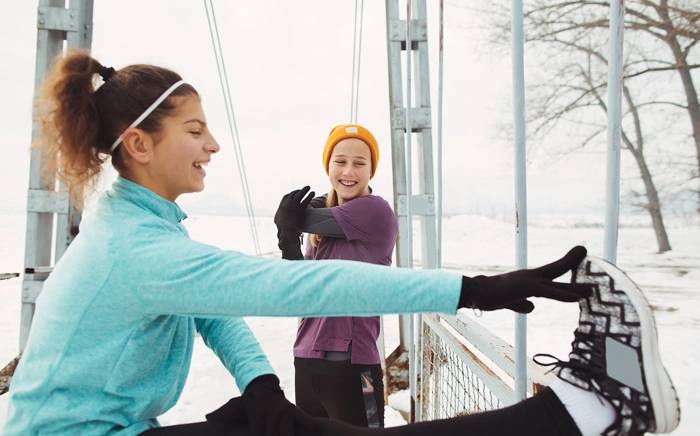“The best way to encourage exercise is for parents to be a role model and plan fun family activities.” says Paul Jenkins, MS, PT, physical therapist at St. Louis Children’s Hospital
It’s getting colder outside and your kids are spending more time indoors, but it doesn’t have to mean they have to be less active. Here are fun ways to keep your kids moving during the winter months.
As the weather changes and there is less opportunity for outdoor play, make plans for more indoor exercises to keep your children active.
Fun Times Indoors
“Parents need to remember that activity and exercise are different things,” says Jenkins. “Activity includes playing games like Twister or Simon Says, while exercise is more intense and should be engaged in for at least 30 minutes two to three times a week.”
Encourage your child to turn up the heat this winter with these exercises.
- For toddlers, fun ways to exercise include turning up the music and dancing for several minutes each day or inviting your young child to join in as you exercise to a video. Whether he or she simply jumps or marches in place next to you, it can be beneficial for both of you.
- If your school-age child enjoys team sports, consider signing him or her up for basketball, volleyball, tennis or karate at a local gym or YMCA.
- Remind your teens that exercise can be a fun part of daily life. Encourage simple ways to stay fit during winter with activities such as taking the stairs, bundling up and walking to and from school (if it’s not too far), school sports and staying active with friends.
Outdoor Venture
Even when it’s cold, time outside is still beneficial for children. However, pay close attention to the weather forecasts about wind chill and rainy conditions before sending him or her out into the cold.
Before going outside, layering clothes and covering as much of the body as possible is paramount in protecting your child’s skin (especially the nose, ears, cheeks, fingers and toes) from frostbite. It’s also important to check on your child frequently. If he or she complains about skin hurting or tingling, immediately bring your child indoors and remove wet clothing.












